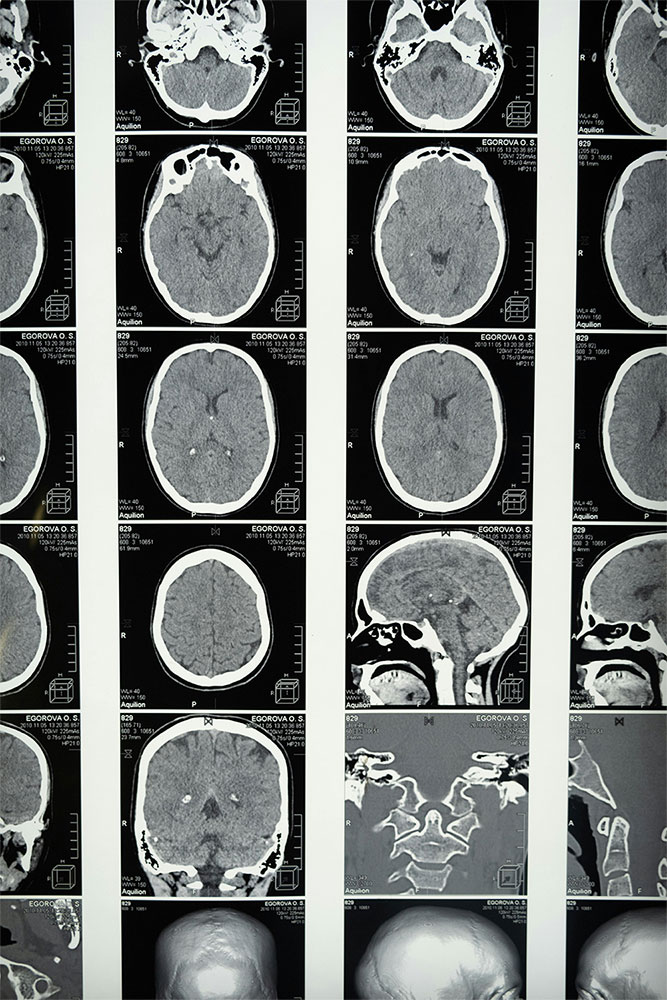The 50s milestone marks a greater need for awareness regarding early Alzheimer’s signs. Early detection and management can be achieved by understanding the symptoms, risks, and methods related to this condition. This article delves into subtle warnings of Alzheimer’s once one reaches their 50s, discussing potential risks, factors, and symptoms that may arise. By recognizing signs and using appropriate testing methods, individuals and loved ones can be proactive in managing the challenges of a potential diagnosis and action plan.

Christopher Ravn
Key Takeaways
1.Once individuals reach their 50s, early detection of Alzheimer’s becomes increasingly important. Recognizing and detecting early signs and symptoms allow for early mitigation and treatment, which can slow the progression of the disease and improve outcomes.
2. Understanding the importance of early warning signs empowers individuals and families to seek early evaluation and timely intervention. This early diagnosis provides the opportunity to start early prevention strategies, explore treatment options, and build supportive networks tailored to their needs.
3. Transitioning from early to late stages of Alzheimer’s requires comprehensive care and support from all involved. By proactively addressing changing needs through lifestyle modifications, medical interventions, and support services, individuals and their families can navigate the challenges of Alzheimer’s with greater resilience and quality of life.
Table of Contents
1. Early Signs Of Alzheimer's In Your 50s
2. Can You Develop Alzheimer's In Your 50s?
3. What Are The 5 Warning Signs Of Alzheimer's In 50s?
4. Symptoms Of Early Onset Dementia In 50s
5. How Rare Is Dementia In Your 50s?
6. How Does Early-Onset Dementia Feel?
7. Early Signs Of Dementia Test In 50s
8. Can Your Eyes Reveal Signs Of Dementia?
9. How Can I Test Myself For Early Signs Of Alzheimer's?
10. How Is Early-Onset Alzheimer’s Disease Diagnosed?
11. Can Early-Onset Alzheimer’s Disease Be Prevented?
12. How Long Does A Person Live With Early-Onset Alzheimer's?
13. Frequently Asked Questions About Early Signs Of Alzheimer's In Your 50s
Early Signs Of Alzheimer's In Your 50s
Once reaching their 50s, early Alzheimer’s detection becomes increasingly important. Early recognition and detection allow for early mitigation of signs and symptoms, thus administering early treatment to slow the progression with the right access to supporting services.
Understanding the importance of early warning signs empowers the individual and families to seek early evaluation and timely intervention. Early diagnosis gets the individual started on early prevention to slow the disease progression. This also gives the individual time to plan and explore other available treatment options, clinical trials, and a head start on building supportive networks tailored to their needs. Creating awareness of the need for early detection for 50s, this article aims to give readers the knowledge and resources to navigate the complexities of Alzheimer’s disease proactively on knowledgeable decision-making.
Can You Develop Alzheimer's In Your 50s?
While uncommon, it is possible to develop Alzheimer’s in the 50s. Most individuals start to experience symptoms after the age of 65, yet early onset of Alzheimer’s has been recorded to impact individuals as young as 40 to 50 years of age. Statistically, around 5% of Alzheimer’s cases are early onset, with symptoms starting as early as ages 30 to 60.
Genetical predisposition plays a primary role in Alzheimer’s early onset. APP and PSEN2 gene mutations can elevate the risks of disease development at a young age. Family history is a strong indicator of early onset, as Alzheimer’s is more likely inherited through gene mutations.
Lifestyle factors also impact risks for early onset Alzheimer’s. Individuals experiencing chronic conditions such as obesity, diabetes, and hypertension have a higher likelihood of contracting early onset Alzheimer’s. Coupled with lifestyle choices like smoking, excessive alcohol intake, and lack of physical activities, further increases the risks.
Unique challenges are faced with early onset Alzheimer’s as these individuals are still highly productive. The awareness of both genetic and lifestyle risks can help early detection and intervention to improve the results for those impacted.
What Are The 5 Warning Signs Of Alzheimer's In 50s?
- Memory loss that disrupts daily life: Difficulty in recalling conversations, missed appointments, and important events, and heavy reliance on memory aids or family members for information recall.
- Challenges in planning and problem-solving: Inability to follow familiar recipes, poor financial and organizational tasks, points to a decline in executive functioning.
- Difficulty completing familiar tasks: Familiar routine activities like driving to known locations, doing household chores, or remembering favorite game rules.
- Confusion with time or place: Disorientation regarding dates, seasons, or the passage of time, or getting lost in familiar places.
- Changes in mood or personality: Mood changes such as sudden anxiousness, feeling depressed, suspicious, or easily upset, along with noticeable changes in behavior or personality.
Symptoms Of Early Onset Dementia In 50s
- Memory loss: Forgetfulness disrupting daily life, including recently learned information, important dates, or events.
- Difficulty with problem-solving: Problems executing tasks involving planning, organizing, or problem-solving, causing challenges in managing finances or following instructions.
- Confusion and disorientation: Confusion about time, place, or recognizing familiar faces or objects, leading to getting lost in familiar areas.
- Language problems: Difficulty finding the right words, following or joining a conversation, or expressing thoughts coherently.
- Changes in mood or behavior: Heightened mood swings, apathy, withdrawal from social activities, or uncharacteristic behavior changes.
How Rare Is Dementia In Your 50s?
While rare, though not unheard of, dementia in the 50s is experienced by 1 in 1,000 individuals statistically. The risk, however, increases with age, notably rising in incidence after the age of 65.
Occurring before 65, it signals early-onset dementia, which differs from common or late-onset dementia in many ways. Firstly, a smaller portion of cases account for early-onset dementia, estimated at around 5-10%. Secondly, it develops more rapidly and may manifest different symptoms compared to late-onset dementia. Additionally, early-onset dementia is highly related to a genetic component, with exceptions, and certain gene mutations predispose individuals to the condition.
In addition, early-onset dementia tends to significantly threaten an individual’s work, finances, and family responsibilities, as they are still in their productive years. This highlights the importance of early detection and intervention to mitigate the fallout of the disease and enhance the quality of life for those affected and their caregivers.
How Does Early-Onset Dementia Feel?
Those affected by early-onset dementia are hit with distress and bewilderment. Individuals initially notice subtle changes in mood, behavior, and cognitive abilities, which can escalate over time.
Personal accounts often describe feelings of confusion, frustration, and anxiety as they attempt to understand what’s happening with their memory or declining thinking abilities. They may find it taxing to recall recent events, find the right words, or follow conversations, leading to feelings of isolation and insecurity.
Altered mood and behavior are also usual early signs, with certain individuals becoming more irritable, withdrawn, or apathetic, while others may suddenly be more impulsive or disinhibited in out-of-character behaviors. These changes tend to strain relationships and negatively impact daily functioning.
From a medical standpoint, early-onset dementia involves the progressive deterioration of brain function, typically caused by neurodegenerative conditions such as Alzheimer’s disease or frontotemporal dementia. As the disease progresses, individuals may struggle with more complex tasks, lose insight into their condition, and require increasing support and supervision.
Recognizing these early feelings and symptoms is vital for timely diagnosis and intervention. Proper medical evaluations and support provide clarity with access to appropriate treatments and help individuals and their families navigate the challenges of living with early-onset dementia.
We Believe Prioritizing Brain Health Enhances Your Quality Of Life
Get to know our team, our mission and how our EVY LIGHT® can provide you and your loved ones with a fuller life, letting you breathe a little easier.
Early Signs Of Dementia Test In 50s
Memory loss, problem-solving difficulties, language challenges, confusion, and changes in mood or behavior are typical early onset signs of dementia in the 50s. Early detection diagnostic tests involve cognitive assessments, brain imaging (such as MRI or CT scans), and blood tests to rule out other possible diseases. These tests are needed for a more accurate diagnosis by identifying cognitive deficits, detecting structural abnormalities in the brain, and ruling out reversible conditions that mimic dementia symptoms.
Furthermore, neuropsychological evaluations are employed to assess various cognitive functions, highlighting specific areas of impairment. Early detection allows for timely intervention, ushering access to more viable treatment options, support services, and lifestyle modifications to help manage symptoms and improve the quality of life for individuals with dementia and their caregiver
Can Your Eyes Reveal Signs Of Dementia?
The eyes are not only windows to the soul, but new research suggests that the eye holds clues to the evidence of dementia. Healthcare professionals have observed alterations in eye movement, such as difficulty in tracking moving objects or task focus, which may point to cognitive decline. Additionally, the abnormal appearance of the eyes, such as drooping eyelids, unequal pupil size, or changes in pupil light reaction, could signal neurological changes related to dementia. It is also important to know which sense is most affected by alzheimer’s disease.
“Dementia eyes” is a term that refers to visual signs and symptoms that healthcare professionals look for when conducting routine eye examinations. Studies have shown that certain eye conditions, like age-related macular degeneration and diabetic retinopathy, may be related to a higher risk of cognitive impairment and dementia. Consequently, ophthalmologists and other healthcare providers are increasingly integrating assessments of eye health into dementia screening protocols, recognizing the potential in ocular changes to aid in early detection and management of the disease.
How Can I Test Myself For Early Signs Of Alzheimer's?
There are available self-administered tests to detect early signs of Alzheimer’s, helping individuals assess their cognitive function and identify potential areas of concern. Some trusted tests include the Mini-Mental State Examination (MMSE), the Montreal Cognitive Assessment (MoCA), and the Self-Administered Gerocognitive Examination (SAGE). These tests evaluate memory, attention, language, and visuospatial skills through a battery of questions and tasks.
While self-administered tests are great for providing valuable initial insights, they have limitations and may not always accurately measure cognitive abilities. That being said, it’s essential to interpret results cautiously and seek further professional evaluations to confirm the significance of concerns. Healthcare providers have access to comprehensive assessments, including medical history, physical examination, and cognitive testing, to confirm or rule out Alzheimer’s disease and other potential causes of cognitive decline. Early diagnosis allows for timely intervention and access to appropriate treatments, support services, and suggested lifestyle modifications to help manage symptoms and improve overall life quality.
How Is Early-Onset Alzheimer’s Disease Diagnosed?
Early-onset Alzheimer’s disease is diagnosed through a series of evaluations conducted by healthcare professionals. These assessments usually include detailed medical history, physical examinations, cognitive testing, and imaging studies such as MRI or CT scans to spot brain changes associated with Alzheimer’s. Genetic testing may also be suggested, especially if family history suggests a high potential for early-onset Alzheimer’s.
Early diagnosis is imperative for managing the advancement of the disease. It allows individuals and their loved ones access to appropriate treatments, support services, and resources to help cope with symptoms and make future plans. While currently no cure exists for Alzheimer’s, early intervention with medications like cholinesterase inhibitors or memantine can help keep symptoms at bay and improve quality of life. Additionally, participating in clinical trials and adopting lifestyle modifications such as regular exercise and cognitive stimulation may aid in slowing the disease’s progression.

Can Early-Onset Alzheimer’s Disease Be Prevented?
While prevention is better than cure, there’s no guaranteed preventive measures for early-onset Alzheimer’s disease, nor a cure if it manifests. However, adopting certain lifestyle changes and medical interventions can help reduce the risks or delay its onset. Maintaining a healthy lifestyle that includes regular physical exercise, a balanced diet rich in fruits, vegetables, and omega-3 fatty acids, as well as engaging in cognitive activities, may support brain health and potentially lower the risk of Alzheimer’s.
Moderating cardiovascular risk factors such as hypertension, diabetes, and obesity is also important, as they have been linked to increased risks of dementia. Additionally, staying socially engaged, getting quality sleep, and managing stress levels may contribute to overall cognitive brain health. It is also important to constantly conduct brain exercises to prevent Alzheimer’s.
Research is ongoing, yet no definitive medical interventions have been found to prevent early-onset Alzheimer’s. However, individuals with a family history of the disease may benefit from genetic counseling and early detection measures, allowing for prompt intervention and support if symptoms arise.

Enhance your brain performance through the power of light.
Comfortable and easy to use 40Hz light therapy to support and improve your brain function.
View Our LightCan Early-Onset Alzheimer’s Disease Be Prevented?
The life expectancy varies for individuals with early-onset Alzheimer’s disease owing to several factors, including age of onset, overall health, and the progression of the disease. On average, individuals diagnosed with early-onset Alzheimer’s may live for approximately 8 to 10 years after symptoms first occur, although some may live longer or shorter lives.
The advancement of early-onset Alzheimer’s is influenced by factors such as genetic makeup, pre-eminent medical conditions, and access to treatment and support services. Research suggests that early diagnosis and intervention, which includes medication, cognitive therapies, and lifestyle modifications, may help slow the progression of the disease and improve the quality of life for both individuals with Alzheimer’s and their caregivers.
While there is currently no cure for early-onset Alzheimer’s, research continues in the development of new treatments and interventions to better manage symptoms and enhance the overall well-being of those affected by this disease.
Learn What Others Have Experienced with EVY Light
See how others have achieved a sharper mind by activating their gamma brainwaves in combination with maintaining a healthy lifestyle.








































































